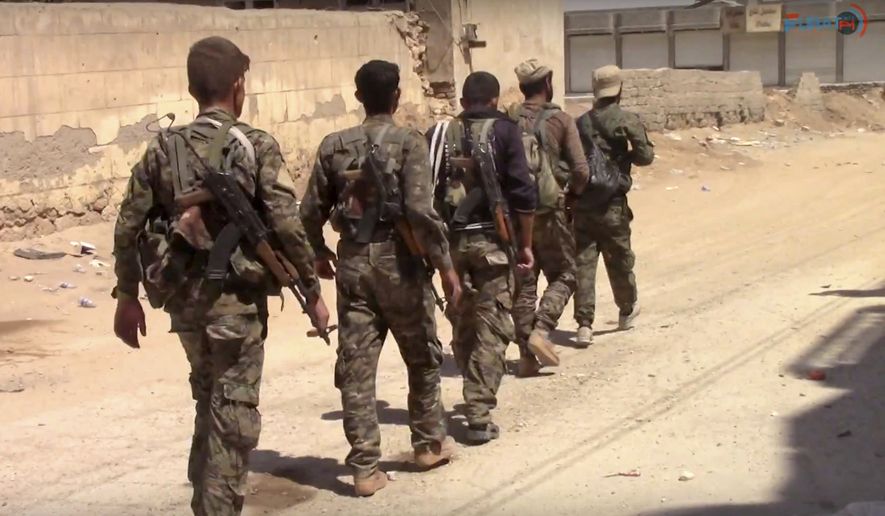The White House’s top envoy in the fight against the Islamic State made clear Thursday that Washington and its allies will not support Kurdish plans to hold an independence referendum vote in northern Iraq.
The vote and subsequent bid for an independent Kurdish state would be “significantly destabilizing” in the wake of Baghdad’s recent liberation of Mosul from the terror group known as ISIS or ISIL. Baghdad’s successful recapture of Iraqi’s second-largest city is one of the most significant victories against ISIS since the U.S.-backed offensive against the group began in earnest two years ago.
But that victory could be fleeting, if Erbil’s push for independence causes the fragile Iraqi coalition of ethnic rivals cobbled together by Washington to fall apart, Special Presidential Envoy for the Global Coalition to Defeat ISIS Brett McGurk said Thursday.
The timing of the vote and the speed in which officials from the Kurdistan Regional Government are pushing to hold the vote could put Baghdad in a politically dangerous position, as the central government attempts to find common ground within the country’s sectarian conflicts for a post-ISIS Iraq.
“We think that under the Iraqi constitution, there’s an important process of dialogue that has to take place, and having a referendum on such a fast timeline, particularly in disputed areas, would be, we think, significantly destabilizing,” Mr. McGurk told reporters after a anti-ISIS coalition meeting at the State Department on Thursday.
An Iraqi delegation from Bagdad recently traveled to Erbil, to discuss the internal and regional ramifications of a Kurdish independence bid, Mr. McGurk said. “That’s the type of dialogue I think we need to see,” he said. Mr. McGurk is the second senior national security official to publicly oppose the referendum vote, slated for September.
On Tuesday, the top U.S. commander in Iraq and Syria said Erbil’s push for independence could adversely affect the ongoing fight against ISIS. “You know, I think… the position of our government is that this is not helpful for the campaign, right now, certainly. It’s not helpful in the coalition’s fight, the world’s fight against ISIS,” Lt. Gen. Stephen Townsend told reporters at the Pentagon.
“This effort by the KRG to have this independence referendum, whether it’s the right thing to do or not, is not my position to judge. But I do think it’ll have some kind of impact and — and apply additional friction to the campaign,” the three-star general added.
Referendum critics continue to claim the move is a thinly veiled power grab by KRG President Masoud Barzani, who they argue is attempting to expand Kurdistan’s territorial borders outlined in the Iraqi constitution. A successful referendum vote and subsequent independence bid could bring the oil-rich city of Kirkuk and other key territory under Erbil’s control.
But to power brokers inside Kurdistan, and their representatives in Washington, Erbil’s massive contribution to the ISIS fight in Iraq has placed the semi-autonomous Iraqi region in a politically perfect position to push for independence. Of the multitude Kurdish, Christian and Turkmen-led political parties who weighed in on the referendum question, only the Gorran and the Kurdistan Islamic Group refused to participate in the upcoming vote.
“The holding of a referendum is the democratic right of the people of Kurdistan and will enable us, for the first time, to determine our future, a statement from the KRG Representation to the United States says. “The outcome of the referendum will lead to negotiations with Baghdad and we ask our friends in the United States to encourage that dialogue so that the settlement is a win-win for both sides.”
KRG officials in Washington dismissed concerns the vote would disrupt U.S. or Iraqi-led efforts to fully flush ISIS from the country, saying the terror group poses as much a threat to Erbil as it does to Baghdad.
• Carlo Muñoz can be reached at cmunoz@washingtontimes.com.




Please read our comment policy before commenting.